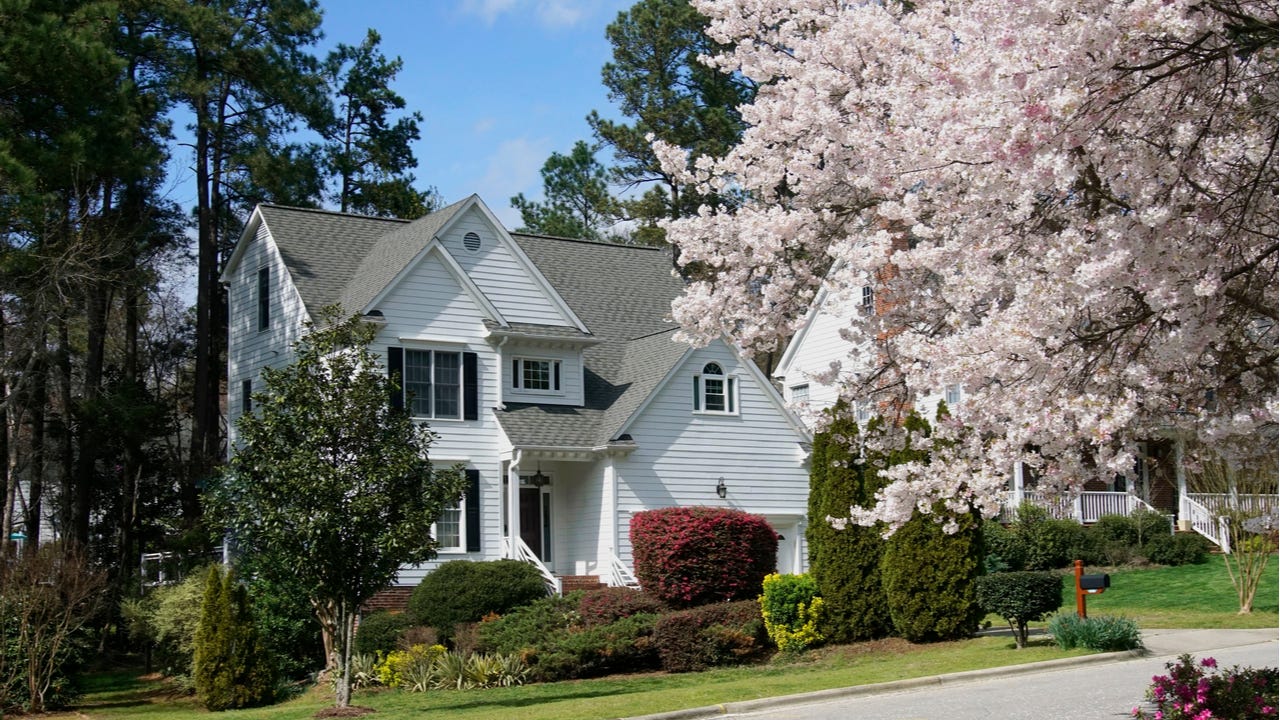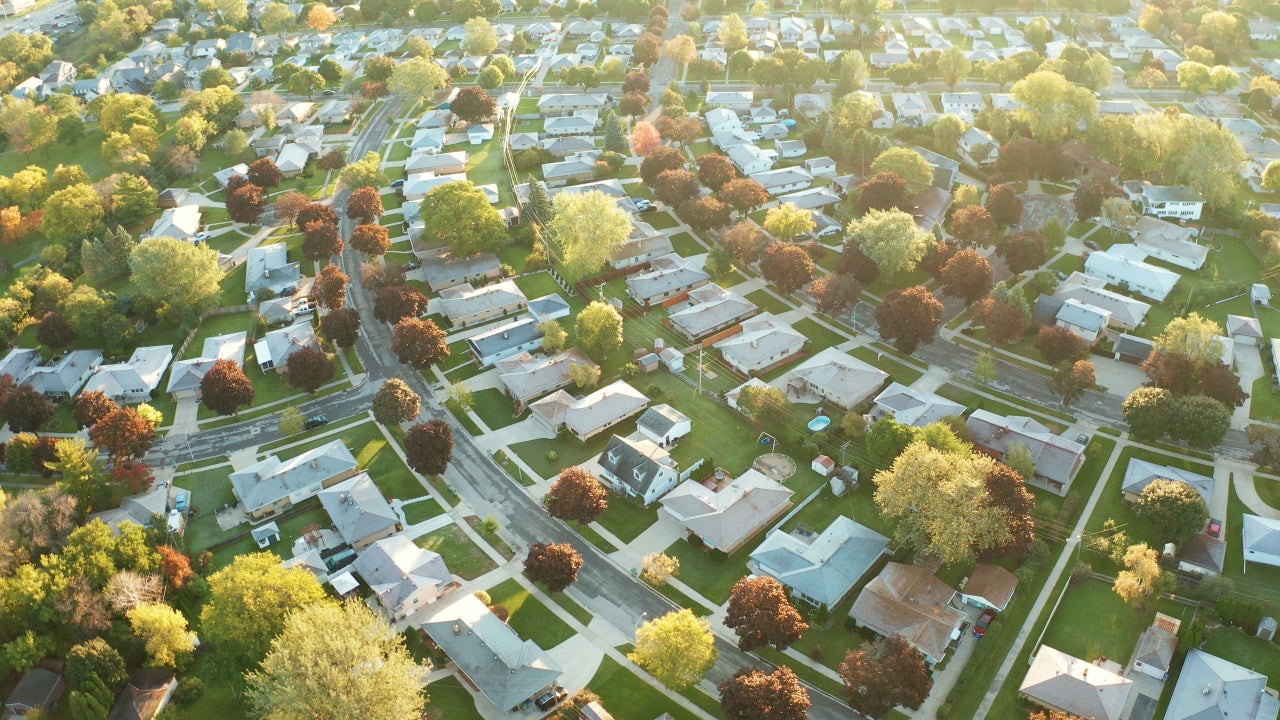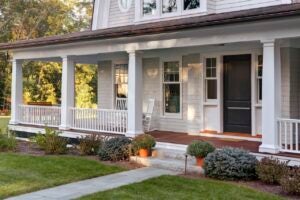North Carolina first-time homebuyer assistance programs

If you’re a first-time homebuyer in North Carolina, you might feel overwhelmed by all the headlines about high mortgage rates and high home prices. While it’s true that the current market makes buying a home feel out of reach for many people, there is news worth celebrating in the Tar Heel State.
The median sales price here is $367,800, according to the most recent data from Redfin – a relative bargain compared with the national figures. And the number of homes for sale is up about 18 percent over this time last year, meaning that, if you can afford to buy, you may see less competition for available homes.
Plus, if you’re concerned about the upfront cost of homebuying, there’s help: The North Carolina Housing Finance Agency offers qualifying buyers competitive interest rates and down payment assistance.
North Carolina first-time homebuyer programs
NCHFA NC Home Advantage Mortgage
NCHFA’s NC Home Advantage Mortgage is available to both first-time homebuyers and those who already own a home. The program offers a fixed-rate mortgage — either a conventional, Federal Housing Administration (FHA), Department of Veterans Affairs (VA) or U.S. Department of Agriculture (USDA) loan — and up to three percent of the loan amount to be used toward a down payment. You need not repay the assistance unless you sell, refinance or move out of your home before you’ve lived there for 15 years. After 15 years, the assistance is forgiven.
North Carolina down payment assistance and grants
NCHFA NC 1st Home Advantage Down Payment
NCHFA also offers $15,000 in down payment assistance specifically to first-time homebuyers, veterans and those buying in targeted markets through the NC 1st Home Advantage Down Payment program. This assistance comes in the form of a zero-interest second mortgage, which is forgiven after you’ve lived in the home for 15 years. To be eligible, you must obtain an NC Home Advantage Mortgage.
NCHFA Community Partners Loan Pool Program
If you earn 80 percent or less of your county’s area median income (AMI), you may be eligible for 25 percent of your home’s sale price — up to $50,000 — in down payment assistance from NCHFA. The assistance is structured as a zero-interest, deferred-payment loan. Payment is required at the end of the 30-year term, or if you sell or move out of the home before the term ends.
City-specific homebuyer assistance programs
In addition to statewide help, some of the biggest cities in the state offer help for buyers with low and moderate incomes.
Raleigh: Homebuyer Assistance Program and Enhanced Homebuyer Assistance Program
Raleigh offers up to $45,000 of down payment assistance with a traditional Homebuyer Assistance Program and up to $60,000 with its Enhanced Homebuyer Assistance Program, which is reserved for anyone buying in a targeted area. The aid is a zero-interest loan that comes due only if you sell or move out of the home.
To qualify for both programs, you must be a first-time homebuyer earning no more than 80 percent of the local AMI.
Durham: City of Durham Down Payment Assistance Program
You may be eligible for $80,000 to be used toward down payment and closing costs if you’re buying a home in Durham and earn 80 percent or less of the local AMI. The assistance is a zero-percent loan which is forgivable after 15 years.
Charlotte: House Charlotte
House Charlotte offers down payment assistance in three amounts: $10,000 for buyers with annual earnings above 80 percent and up to 110 percent of the local AMI, $30,000 for buyers who earn 80 percent or less of the local AMI and $80,000 for city employees who meet income limits. All assistance programs are structured as zero-interest loans which are forgivable after the 15- or 30-year term expires, depending on the program.
Other first-time homebuyer loan programs
While you’re considering first-time homebuyer programs in North Carolina, be sure to explore nationally available loan programs including:
- FHA loans: These loans are widely available and require a down payment of as little as 3.5 percent if you have a credit score of at least 580.
- VA loans: If you’re a member of the military or veteran, you could qualify for a VA loan, which typically doesn’t require a down payment.
- USDA loans: USDA loans don’t have a down payment requirement, but they’re available only to borrowers buying in a USDA-eligible rural area. You typically need a credit score of 640 or higher to qualify.
- Good Neighbor Next Door program: This HUD program offers homebuyers in qualifying occupations a 50 percent discount on the list prices of certain homes.
Get started
Along with contacting the NCHFA or your local housing authority, follow these steps to buy your first home in North Carolina:
- Compare North Carolina mortgage rates: Rates have been hovering around 7 percent, but every lender is different. Apply with multiple lenders to see who offers the lowest rate.
- Read North Carolina mortgage lender reviews: Find out what other borrowers have to say about their experiences. How much did they pay in fees? Was the process smooth? Would they use the same company again if they could start over?
- Estimate your homeowners insurance costs: While you’ll be focused on how much your bill for principal and interest will be, don’t forget to take your homeowners insurance premiums into account. Make sure to determine if you need flood insurance – which will not come with a standard policy – too.
- Educate yourself on the North Carolina housing market: Learn about which party pays for what in closing costs, how you can negotiate for the seller to cover more of the expenses and what to expect from the house-hunting journey. Remember that buying a home in Raleigh will likely look much different than buying a home in Asheville, so take time to research the local market.
- Get your credit in the best shape possible: No matter what type of loan or home you want, a higher credit score will help you get a better deal.
Why we ask for feedback Your feedback helps us improve our content and services. It takes less than a minute to complete.
Your responses are anonymous and will only be used for improving our website.
You may also like


‘We buy houses’ companies in Illinois




